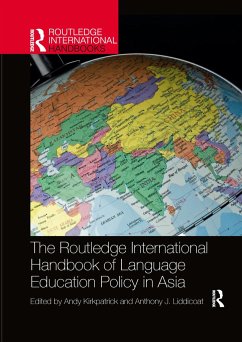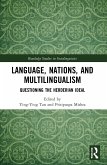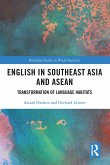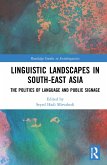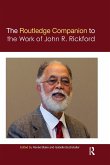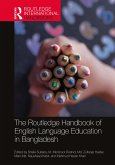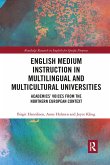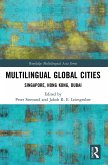This must-have handbook offers a comprehensive survey of the field. It reviews the language education policies of Asia, encompassing 30 countries sub-divided by regions, namely East, Southeast, South and Central Asia, and considers the extent to which these are being implemented and with what effect.
The most recent iteration of language education policies of each of the countries is described and the impact and potential consequence of any change is critically considered. Each country chapter provides a historical overview of the languages in use and language education policies, examines the ideologies underpinning the language choices, and includes an account of the debates and controversies surrounding language and language education policies, before concluding with some predictions for the future.
The most recent iteration of language education policies of each of the countries is described and the impact and potential consequence of any change is critically considered. Each country chapter provides a historical overview of the languages in use and language education policies, examines the ideologies underpinning the language choices, and includes an account of the debates and controversies surrounding language and language education policies, before concluding with some predictions for the future.
'It can be a difficult task to keep up with the rapid changes in language education policy as Asian nations try their best to balance preservation of their own languages and adding proficiency in other languages as demanded by the globalized market. This new handbook, edited by two scholars with long experience in the field and with chapters written by local experts, is exactly the resource you need to navigate this everchanging area. It is a significant addition to the literature on the topic.' - Bernard Spolsky, Professor Emeritus, Bar-Ilan University, Israel
'Choices in language education policy in Asia are remarkably complex. The region contains the most linguistically diverse societies on earth, enriched by ancient and validated literary traditions and dozens of scripts and orthographic traditions. This Handbook will be an invaluable intellectual and practical resource for researchers, teachers, policy makers and community members. It is an impressive effort with a comprehensive coverage of countries and geographic regions, language education policy types and their effects.' - Joseph Lo Bianco, Professor of Language and Literacy Education, University of Melbourne, Australia
'Choices in language education policy in Asia are remarkably complex. The region contains the most linguistically diverse societies on earth, enriched by ancient and validated literary traditions and dozens of scripts and orthographic traditions. This Handbook will be an invaluable intellectual and practical resource for researchers, teachers, policy makers and community members. It is an impressive effort with a comprehensive coverage of countries and geographic regions, language education policy types and their effects.' - Joseph Lo Bianco, Professor of Language and Literacy Education, University of Melbourne, Australia
'It can be a difficult task to keep up with the rapid changes in language education policy as Asian nations try their best to balance preservation of their own languages and adding proficiency in other languages as demanded by the globalized market. This new handbook, edited by two scholars with long experience in the field and with chapters written by local experts, is exactly the resource you need to navigate this everchanging area. It is a significant addition to the literature on the topic.' - Bernard Spolsky, Professor Emeritus, Bar-Ilan University, Israel
'Choices in language education policy in Asia are remarkably complex. The region contains the most linguistically diverse societies on earth, enriched by ancient and validated literary traditions and dozens of scripts and orthographic traditions. This Handbook will be an invaluable intellectual and practical resource for researchers, teachers, policy makers and community members. It is an impressive effort with a comprehensive coverage of countries and geographic regions, language education policy types and their effects.' - Joseph Lo Bianco, Professor of Language and Literacy Education, University of Melbourne, Australia
'Choices in language education policy in Asia are remarkably complex. The region contains the most linguistically diverse societies on earth, enriched by ancient and validated literary traditions and dozens of scripts and orthographic traditions. This Handbook will be an invaluable intellectual and practical resource for researchers, teachers, policy makers and community members. It is an impressive effort with a comprehensive coverage of countries and geographic regions, language education policy types and their effects.' - Joseph Lo Bianco, Professor of Language and Literacy Education, University of Melbourne, Australia

